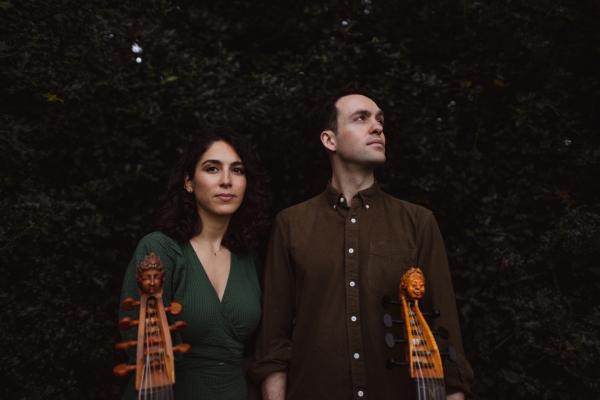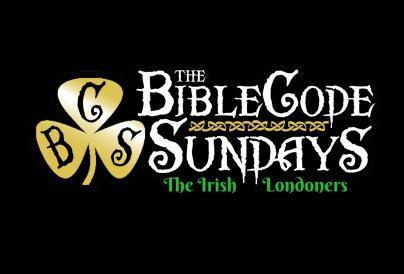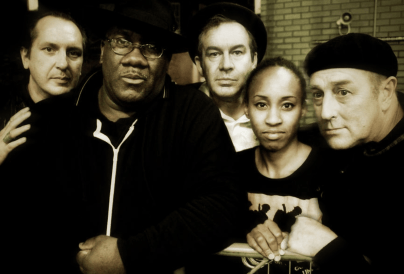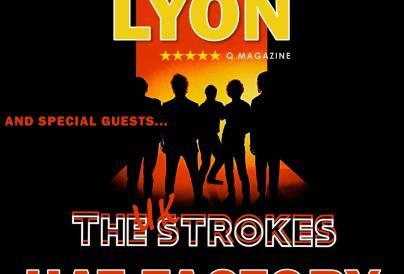Music In The Museum: December
Classical music performance taking place in the stunning Drawing Room, surrounded by the museum's unique art collection and with spectacular views overlooking Wardown Park.
Join us for a stunning performance with Intesa Duo - A Celebration of Christmas with Viols and Voice.
Bio
Intesa Duo
Intesa was formed in 2023 at the Royal Academy of Music by Lucine Musaelian and Nathan Giorgetti, with the goal of celebrating the viol’s combination with the voice. Intesa is an Italian word meaning “understanding”, or a meeting of minds. This ethos of collaboration is embodied in the duo’s programming, where folk and early music are placed side-by-side, bringing together European and Armenian traditions through narrative and self-accompaniment.
Intesa performs regularly in the UK and internationally. Highlights include several sold-out concerts at Handel Hendrix House and Fidelio Cafe, a residency with the National Centre for Early Music, the Leeds International Concert Season, the Stoke Newington Early Music Festival and the Islington Arts Festival in London. Overseas engagements have included two performances at the Utrecht Fabulous Fringe Early Music Festival, concerts at Vilalte Festival, a New York debut concert at the Harold Pratt House and the Gotham Early Music Scene Midtown Concerts series, and a concert in Vienna as part of the Resonanzen early music festival. Upcoming engagements feature performing at the Residenzwoche Munchen, a return to the Vienna Resonanzen Festival, and a tour of Scotland in January 2026, organised by the Tunnell Trust.
They are currently recording their debut album, which will be available on the Pelle d’Oca label in 2026.
Since their founding, Intesa were awarded the 2023-24 Chamber Music Fellowship at the Royal Academy of Music, won 2nd prize at the #GeneraciónSMADE competition in Spain, and are one of five winners of the Tunnell Trust Awards in 2024.
Their programme Ninna Nanna seeks light and hope in the midst of dark and wintry weather through Armenian chant, songs about the Virgin Mary by Francesca Caccini and Tarquinio Merula, dances by Tobias Hume, in addition to a few familiar Christmas Classics.
Programme and Lyrics
Nerses Shnorhali (1102-1173) – Aravot luso
Thomas Morley (1557-1602) – Miraculous Love's Wounding
Catalan Traditional – El Cant dels Ocells
Francesca Caccini (1587-1640) – Maria, dolce Maria
Armenian Traditional – Shogher jan
St. Movses Khorenatsi (5th century) – Urakhatsir Srbuhi
Tarquinio Merula (1595-1665) – Canzonetta spirituale sopra alla nanna
John Dowland (1563-1626) – Time Stands Still
Marin Marais (1656-1728) – Les Voix Humaines
Tobias Hume (1569-1645) – The King of Denmark's Delight
Tobias Hume (1569-1645) – A Merry Conceit
Lucine Musaelian (b. 1997) – Morning Light
Welsh Traditional – All Through the Night
Aravot Luso - Nerses Shnorhali
English translation by Tiran Archbishop Nersoyan
ARM
Առաւօտ լուսոյ,
Արեգակն արդար,
Առ իս լոյս ծագեա:
Բղխումն ի Հօրէ,
Բղխեա ի հոգւոյս,
Բան գեզ ի հաճոյս։
Գանձդ ողորմութեան
Գանձիդ ծածկելոյ
Գտող զիս արա։
Դուռն ողորմութեան
Դաւանողիս բաց,
Դասեցո վերնոցն։
ENG
O morning of light,
O thou righteous sun,
Shed on me thy light.
O Father’s Spirit,
Pour forth from my soul
Words pleasing to thee.
Treasure of mercy,
Of thy hidden wealth
Make me a finder.
The door of mercy
Open thou for me,
With angels rank me.
El Cant del Ocells - Catalan traditional
CAT
Al veure despuntar
el major lluminar
en la nit més ditxosa,
els ocellets cantant,
a festejar-lo van
amb sa veu melindrosa.
L’àguila imperial
se’n vola cel adalt,
cantant amb melodia,
dient: Jesús és nat,
per treure’ns de pecat
i dar-nos alegria.
Repon-li lo pardal:
Avui, nit de Nadal,
és nit de gran contento!
El verdum i el lluer
diuen cantant, també :
"Oh, quina alegria sento!
ENG
In seeing emerge
The greatest light
During the most celebrated of nights,
The little birds sing.
They go to celebrate Him
With their delicate voices.
The imperial eagle
flies high in the sky,
singing melodically,
saying, "Jesus is born
To save us all from sin
And to give us joy."
The sparrow responds,
Today, this Christmas Eve,
Is a night of good cheer!"
The greenfinch and the siskin
Say in singing, too,
"Oh, what joy I feel!"
Maria, dolce Maria - Francesca Caccini
English translation Anonymous
ITA
Maria dolce Maria, come soave tanto
Ch'e pronunciar t'in paradisi core
Nome sacrato e Santo
Ch'el cor m'infiammi di celeste amore
Maria mai sempr'io canto
Ne puo la lingua mia piu felice parola
Trarmi dal sen gia mai che dir
Che dir Maria
Nome ch'ogni dolor tempra'e consola
Voce tranquilla ch'ogni affano acqueta
Ch'ogni cor fa sereno, ogn'alma lieta
ENG
Maria, sweet Maria, such a sweet name,
that in speaking fills your heart with rapture,
sacred and holy name
that enflames my heart with heavenly love.
Maria, never as long as I sing
can my voice draw from my breast a more joyful word
than to say Maria,
name that tempers and consoles every sorrow,
calm voice that stills every grief,
makes every heart serene, every soul joyful.
Shogher Jan - Komitas (arr. Musaelian)
English translation Anonymous
ARM
Ամպել ա, ձուն չի՛ գալի, Շողե՜ր ջան,
Սարիցը տուն չի՛ գալի, Շողե՜ր ջան,
Դու շորորա՛, դուն օրորա՛ Շողե՜ր ջան,
Ամպի տակին ձուն կերեւա, Շողե՜ր ջան:
Սիրտս կըրակով լըցված, Շողե՜ր ջան,
Աչքիս քուն չի գալի, Շողե՜ր ջան,
Դու շորորա՛, դուն օրորա՛ Շողե՜ր ջան,
Ամպի տակին ձուն կերեւա, Շողե՜ր ջան:
Սարի գլխին ձուն եկավ, Շողե՜ր ջան,
Շեկլիկ յարըդ տուն եկավ, Շողե՜ր ջան,
Ուն կերեւա, ձուն կերեւա, Շողե՜ր ջան,
Բերդի տակին տուն կերեւա, Շողե՜ր ջան:
Աշունն եկավ սարիցը, Շողե՜ր ջան:
Տերև թափեց ծառիցը, Շողե՜ր ջան:
Ուն կերևա, ձուն կերևա, Շողե՜ր ջան:
Շողոն դարդով լըցվել ա, Շողե՜ր ջան:
ENG
It’s cloudy, it’s not snowing, dear Shogher,
He is not coming home from the village, dear Shogher,
Dance, lull, dear Shogher,
The snow is showing below the mountain, dear Shogher.
My heart is filled with fire, dear Shogher,
My eyes don’t want to sleep, dear Shogher,
Dance, lull, dear Shogher,
The snow is showing below the mountain, dear Shogher.
It has snowed at the top of the mountain, dear Shogher,
Your blonde lover came home, dear Shogher,
We see a lot, we see snow, dear Shogher,
A house is showing at the bottom of the fortress, dear Shogher.
Autumn came down from the mountain, dear Shogher,
Leaves fell from the trees, dear Shogher,
We see a lot, we see snow, dear Shogher,
A house is showing at the bottom of the fortress, dear Shogher.
Urakhatsir Srbuhi - St. Movses Khorenatsi
English translation by V. Rev. Fr. Daniel Findikyan
ARM
Ուրախացիր, սրբուհի, Գաբրիելի աւետեօքն. որ քարոզեացն զգալուստ արքային Տեառն ի յերկնից:
Ուրախ լեր բերկրեալ ամենասուրբ կոյս. որ ծնար աշխարհի զարդարութեան արեգակն. որ լուսաւորեաց զազգս որդւոց մարդկան:
ENG
Rejoice holy lady in Gabriel’s good news! He has proclaimed the coming of the King, the Lord of heaven.
Rejoice and be glad most holy Virgin, who gave birth to the sun of righteousness of the world. He has shined light on the human race.
Canzonetta spirituale sopra la nanna - Tarquinio Merula
English translation by Anna O’Connell (with a great deal of assistance
from Ellen Hargis)
ITA
Hor ch’e tempo di dormire, dormi mi figlio e non vagire,
perche tempo ancor verrà, che vagir bisognerà.
Deh ben mio, deh cor mio fa, fa la ninna ninna na.
Chiudi quei lumi divini, come fan gl’altri bambini,
perché tosto oscuro velo priverà di lume il chielo.
Deh ben mio, deh cor mio fa, fa la ninna ninna na.
O ver prendi questo latte dalle mie mammelle intatte,
perche ministro crudele ti prepara aceto e fiele,
Deh ben mio, deh cor mio fa, fa la ninna ninna na.
Amor mio, sia questo petto hor per te morbido letto,
pria che rendi ad alta voce l’alma al Padre su la croce.
Deh ben mio, deh cor mio fa, fa la ninna ninna na.
Posa hor queste membra belle vezzosette e tenerelle,
perche poi feri e catene gli daran acerbe pene.
Deh ben mio, deh cor mio fa, fa la ninna ninna na.
Queste mani e questi piedi ch’or con gusto e gaudio vedi,
Ahime, com’in varii modi passeran acuti chiodi
Questa faccia graziosa rubiconda, hor più che rosa
Sputi e schiaffi sporcheranno con tormento e grand’afanno
Ah con quanto tuo dolore, sola speme del mio core,
questo capo e questi crini passeran acuti spini
Ah ch’in questo divin petto, amor mio dolce diletto,
vi farà piaga mortale, empia lancia e di sleale.
Dormi dunque, figliol mio, dormi pur, redentor mio,
perchè poi con lieto viso ci vedrem in Paradiso.
Hor che dorme la mia vita, del mio cor gioia compita,
taccia ognun con puro zelo, taccian sin la terra e’l cielo.
E fra tanto, io che farò? Il mio ben contemplerò,
ne starò col capo chino fin che dorme il mio bambino.
ENG
Now that it is time to sleep, sleep my son and don’t cry,
For the time will come soon enough, when crying is needed.
And so, my dearest heart: Lullaby and sleep.
Close those divine eyes as other babies do,
For soon a thick veil Will deprive the sky of light.
And so, my dearest heart: Lullaby and sleep.
Or take this milk from my immaculate breasts,
For a cruel magistrate is preparing vinegar and gall for you.
And so, my dearest heart: Lullaby and sleep.
My love, let this breast be a soft bed for you
Before, you raise your voice and give your soul to the Father.
And so, my dearest heart: Lullaby and sleep.
Rest now your beautiful limbs, so charming and tender,
For later irons and chains will cause them bitter pains.
And so, my dearest heart: Lullaby and sleep.
Those hands and those feet which you now see with zest and joy,
Alas, in how many ways will sharp nails pierce them.
This graceful face, ruddier than a rose:
Spit and slaps will defile it, with great torture and great suffering.
Ah, with how much pain for you, only hope of my heart,
This head and this brow will be pierced by sharp thorns.
Ah, for in this divine breast, love of mine, sweet and dear,
An impious, traitorous spear will make a mortal wound.
Sleep then my son, sleep then, my savior,
For later, with joyful faces, we will see each other in Paradise.
Now that you are sleeping, my life, complete joy of my heart,
Let us all with pure zeal, be silent: even the earth and Heaven.
Meanwhile, what shall I do? I will watch my dear,
Remaining with my head bowed, for as long as my child sleeps.
Time Stands Still - John Dowland
English source: Anonymous
Time stands still with gazing on her face.
Stand still and gaze, for minutes, hours and years to her give place.
All other things shall change but she remains the same.
Till heavens changed have their course and Time hath lost his name.
Cupid doth hover up and down, blinded with her fair eyes.
And Fortune captive at her feet contemned and conquered lies.
Whom Fortune, Love, and Time attend on,
Her with my fortunes, love, and time I honour will alone.
If bloodless Envy say Duty hath no desert,
Duty replies that Envy knows herself his faithful heart.
My settled vows and spotless faith no fortune can remove,
Courage shall show my inward faith, and faith shall try my love
Morning Light - L. Musaelian
You are like the morning light on a cold winter’s day,
After a never-ending night you take uncertainties away.
You beam right through my unadjusted eyes like you knew I’d cried, now they’re open wide.
I’d never know you like I do if day and night did not collide.
Sometimes I feel I don’t know anything,
I just know tomorrow you’ll appear, nature’s glistening chandelier,
Shedding light on a path I did not see the night before,
I don’t need anything more.
I fell asleep, drifting in a deep November far away, remembering that day.
“Wake up, it’s just another dream!” but even so, the feeling stays.
Sometimes I feel I don’t know anything,
I just know tomorrow you’ll appear.
You’re the unabashed smile,
The “hey, it’s been a while.”
You’re the steadfast tin soldier,
The eyes of the beholder.
You’re the “God, it’s good to see you,
After all we’ve been through,”
You’re the light, my morning light.
All Through the Night (Ar Hyd y Nos) - Welsh trad.
Sleep, my love, and peace attend thee
All through the night.
Guardian angels God will lend thee
All through the night.
Soft the drowsy hours are creeping,
Hill and vale in slumber sleeping,
I my loving vigil keeping,
All through the night.
Love to thee my thoughts returning,
All through the night,
All for thee my heart is yearning,
Though sad fate our lives may sever,
Parting will not last forever,
There's a hope that leaves me never,
All through the night.
Deep the silence 'round us spreading,
All through the night.
Dark the path that we are treading,
All through the night.
Still the coming day discerning
By the hope within us burning,
To the dawn our footsteps turning
All through the night.
Star of faith the dark adorning,
All through the night.
Lead us fearless towards the morning,
All through the night.
Though our hearts be wrapped in sorrow
From the hope of dawn we borrow
Promise of a glad tomorrow,
All through the night.
Programme Notes
Ninna Nanna explores the path to light and hope in the midst of dark and wintry weather, beginning with a 12th C Armenian chant called ‘Առաւօտ լուսոյ’, or ‘Light of Morning,’ which speaks about the search for light. ‘El Cant dels Ocells’ addresses the emergence of light through the birth of Jesus. We continue with a sweet ode to Mary, ‘Maria, dolce Maria’ by Giulio Caccini’s daughter Francesca. ‘Shogher Jan,’ a traditional Armenia piece celebrates the coming of the cool weather and the return of loved ones.
The 5th Century chant, ‘Ուրախացիր, սրբուհի,’ or ‘Rejoice, holy one,’ was originally notated in Armenian khaz or ‘neume’ notation and was transcribed in 1875 as a part of the Vagharshapat collection of chant, revealing a delicate and haunting melody. Tarquinio Merula’s Canzonetta spirituale sopra alla nanna is an even more haunting lullaby that Mary sings to her Son, warning Him of his fated crucifixion. This is accompanied by a relentless repeating bassline throughout.
‘Time Stands Still’ is a lute song by John Dowland dedicated to Elizabeth I. This ode honours the Virgin Queen and the Virgin Mary alike, praising their steadfastness and beauty. Marin Marais’ ‘Les Voix Humaines’ is an ode to human voices, and might also refer to an organ stop that creates a murmuring, vibrato sound.
The final set begins with two pieces by Scottish composer Tobias Hume, who was a soldier, viol player, and amateur composer. These playful dances, ‘King of Denmark’s Delight’ and “A Merry Conceit” come from Hume’s collection of pieces for two viols Poeticall Musicke published in 1607, where the viol parts are notated in tablature. The programme closes with an original song called ‘Morning Light,’ and the popular Welsh lullaby ‘Ar Hyd y Nos’ or “All through the Night.”







